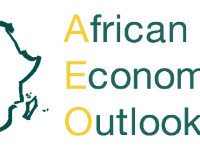Health
THE ECONOMIC IMPACT OF EBOLA IN AFRICA
BRIEF SUMMARY OF CONSEQUENCES ON AFRICA

World Health Organization (Source: World Health Organization)
USPA NEWS -
The Ebola virus has particularly hit Guinea, Liberia and Sierra Leone causing tremendous human hardship and high economic costs. Only gradual recovery is expected in the near term. By March 2015, there had more than 25 000 reported cases & more than 10 000 reported death (World Health Organization).
Testimony of Carmen Pessoa Da Silva, an Infection Control Specialist. (www.who.int)
"People tend to think that infection control is only about putting on and taking off personal protective equipment (PPE), but it covers any measures that prevent infection. Not only does it include Ebola treatment centers and health facilities, but it extends out into the comunity. Ebola is a disease that spreads because of lack of hygiene. People need to know how it is transmitted and have the means to protect themselves. And it is very important to make sure that the measures used are effective and safe".
"People tend to think that infection control is only about putting on and taking off personal protective equipment (PPE), but it covers any measures that prevent infection. Not only does it include Ebola treatment centers and health facilities, but it extends out into the comunity. Ebola is a disease that spreads because of lack of hygiene. People need to know how it is transmitted and have the means to protect themselves. And it is very important to make sure that the measures used are effective and safe".
Based on The Africa Economic Outlook 2015 Report. The 2014 GDP shortfall in the three countries together amounted to about USD 1,4 billion in purchasing power parity. Economic activity will remain depressed, notably in Sierra Leone where the economy is expected to contract, but by 2016, the economies are expected to recover again in all three countries.
The region has been adversely affected through lower cross-border trade and fewer international tourists, notably Burkina Faso, Ivory Coast, Gambia and Senegal. Unlike the countries that industrialised earlier, African economies face the challenge of structural transformation in a global context of climate change. The negative effects heavily affect the poorest who largly depend on them not only for food but also dor jobs. Pressure on already limited water supply is expected to increase. Livestock may also suffer from shrinking water supply, as grazing land is divided and damaged, and new diseases arise.
As the demographic pressure on land grows, gathering wood for fuel will cause deforestation, as will developing agriculture and felling for timber.
Africa's population of 1 billion in 2010 should double by 2050, although the magnitude of the increase will vary across the continent. South Africa and the region of North Africa will be less affected. The rapid growth of African's workforce will increase the pressure on labour markets. The workforce is expected to increase by 910 million people between 2010 and 2050, of which 830 million in Sub-Saharan Africa and 80 million in North Africa.
Africa's population of 1 billion in 2010 should double by 2050, although the magnitude of the increase will vary across the continent. South Africa and the region of North Africa will be less affected. The rapid growth of African's workforce will increase the pressure on labour markets. The workforce is expected to increase by 910 million people between 2010 and 2050, of which 830 million in Sub-Saharan Africa and 80 million in North Africa.
The estimated numbers of youth joining labor markets in 2015 are about 19 million in Sub-Saharan Africa and 4 million in North-Africa. Over the next 15 years, the figures will be 370 million and 65 million respectively.
In 2014, as in the previous years, top drivers of public protests continue to be employment-related claims for wage increases and better working conditions, followed by demands for better public services.
In 2014, as in the previous years, top drivers of public protests continue to be employment-related claims for wage increases and better working conditions, followed by demands for better public services.
Africa Guinea Liberia Sierra Leone Ebola World Health Organisation Africa Economic Outlook; Human Hardship Burkina Faso Ivory Coast Gambia Senegal Economy Disease Water Desert Food Workforce Sub-saharan Africa Agriculture Deforestation
Liability for this article lies with the author, who also holds the copyright. Editorial content from USPA may be quoted on other websites as long as the quote comprises no more than 5% of the entire text, is marked as such and the source is named (via hyperlink).






